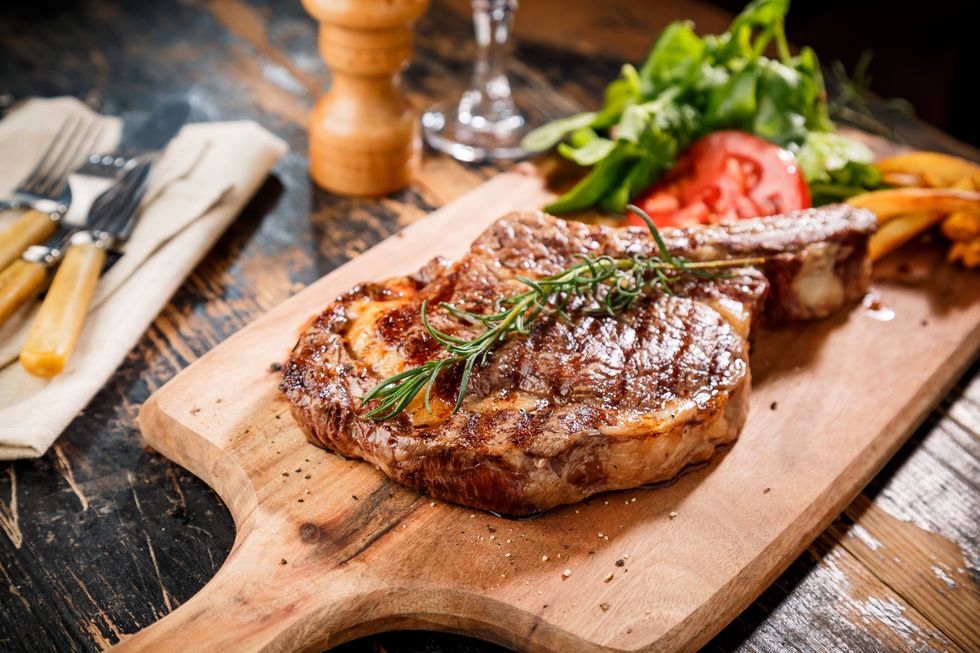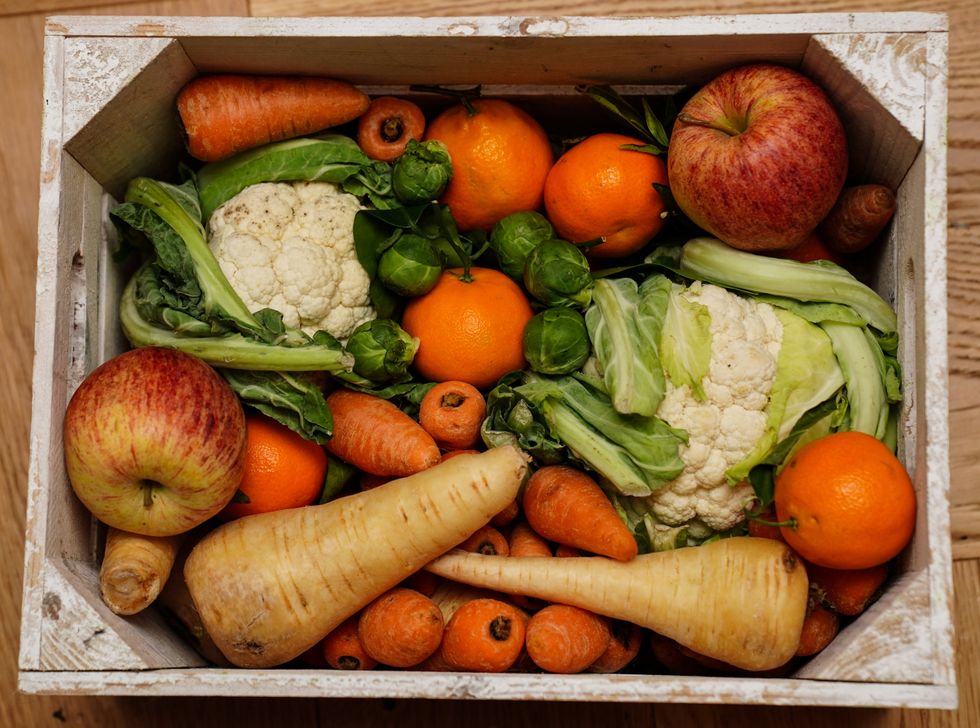Men over 40 can lose weight for good with 'simple and sustainable' diet hack to form the 'perfect plate'

Men have been given a simple but essential weight loss tip
|GETTY IMAGES

Slimmers should have a think about their 'go-to' proteins, carbohydrates and fats
Don't Miss
Most Read
Men in their 40s and beyond may find themselves gaining weight they didn't carry previously. This can be blamed on a poor diet, drinking too much alcohol, a lack of exercise, and crucially, a change in hormones as oestrogen becomes more dominant with the drop of testosterone and progesterone.
Although these hormonal changes are inevitable, this doesn't mean that men have to be content with excess weight gain. A naturopathic doctor - and founder of Fit Father Project - Fitness For Busy Fathers - recommended they carefully select their favourite proteins, carbohydrates and fats.
Speaking about "the best diet for men", Dr Anthony Balduzzi said: "First and foremost, outside of all of the complicated details we could get into, the best diet has to be one that you can actually stick to.
"There are so many weight loss diets out there that are way too restrictive - the whole 'never eat a carb again' plans, or the kind of plans where you have to eat every two hours on the dot and pack 15 meals to work every day.
"Often we try to do these really restrictive, complicated plans because we think they work better, but ultimately that's going to lead to failure because if we can't sustain the diet, it's not an option for us."

Steak is a source of high-quality protein
|GETTY IMAGES
Slimmers are more likely to stick to a "simple and sustainable" plan and reap more positive results. Dr Anthony shared a weight loss hack that will make things "easy" for you.
He advised that an effective weight loss diet plan is sustainable, affordable - no "crazy" ingredients - and correctly portioned.
The expert said: "The way I like to teach the best diet concepts to men is that there are three main categories of macronutrients. What macronutrients are, are proteins, carbs and fats.
"When assembling the perfect diet, we also need to look at the kind of foods we're eating in each of these categories."
Dr Anthony's first tip for men who are looking to eat more healthily is to choose their "go-to" foods within these categories.
Men on a weight loss journey should have a think about the healthy proteins, carbs and fats they want to incorporate into their diets. Crucially, you're more likely to eat something regularly if you actually enjoy it.
The expert asked: "What are your favourite proteins? What are some healthy proteins you can base some of your meals around?"
Dr Anthony's personal favourite is canned wild salmon, which is "incredibly convenient" because he doesn't need to cook it. Grass-fed steak, pork, sardines and eggs are other options. He challenged men to think of "three healthy choices" in each category.
Carbohydrates are often vilified when it comes to weight loss, but according to the expert, men do not need to cut these out to see success.
He said: "You do not have to cut out all carbs if your goal is to live healthier and lose weight. You just have to eat the right kinds of carbs and in the right portions."
LATEST DEVELOPMENTS

Half of your 'perfect plate' should be comprised of your favourite vegetables
| PA IMAGESDr Anthony's favourites are sprouted brown rice, sprouted bread (a common practice used to improve the digestibility and nutritional value of seeds, grains, nuts or legumes), and sweet potatoes.
He claimed that by selecting your favourites of each macronutrient, you can actually "assemble the pieces of a perfect diet". For example, men can whip up some steak, sweet potato and a little bit of avocado - "that would be a great meal".
Berries, sweet potato, bread, rice and wholewheat pasta are all examples of potential "go-to" carbs.
As for healthy fats, avocados make an excellent and versatile option. Olive oil is another great option, or the naturally occurring fats in grass-fed steak.
Dr Anthony said that fats are important because they help increase your energy, decrease inflammation and improve satiety.
He added that half of your "perfect plate" should be the veggies you love, plus one-quarter protein and one-quarter starch. The fats should then "work their way in".
According to the expert, meals should be eaten roughly every four hours, for example, breakfast at 8am, lunch at noon, a snack at 3pm and lunch at 7/8pm, which is "optimal" for managing blood sugar stability, keeping hunger levels down, and keeping the metabolism in a healthy range.










